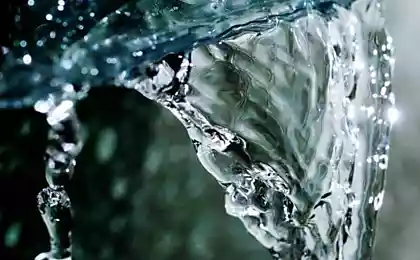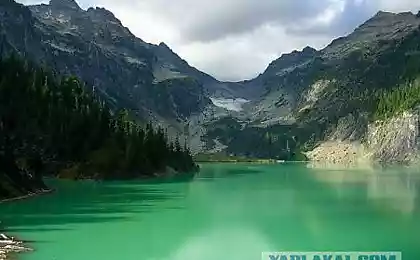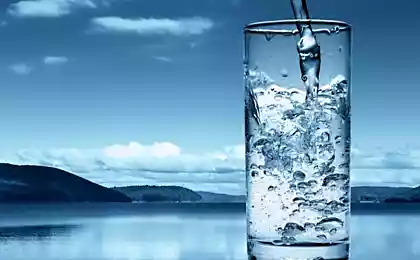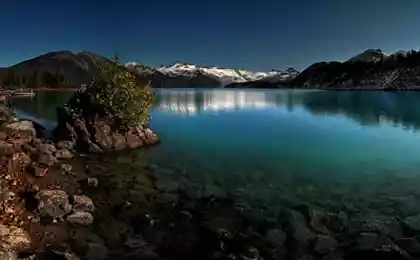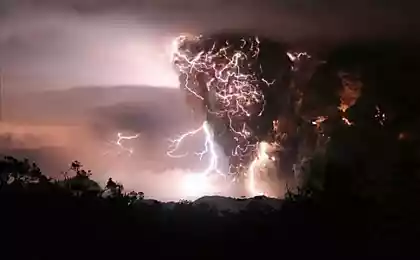255
The Great Lakes That Changed History
Interesting facts and little-known details about the most famous lakes in the world, which influenced the development of human civilizations and major historical events.

Why are lakes so important to history?
Lakes are often perceived by us as picturesque places for recreation, fishing or inspiration. However, their role in the development of human civilizations is much more significant. Large trade routes arose on the shores of the lakes, empires arose and disappeared, and their resources often became the key to economic prosperity or the cause of conflicts. In this collection of facts, we will tell you about several legendary lakes that have made a significant contribution to world history.
Lake Titicaca: Cradle of Civilizations
Titicaca is located on the border of Peru and Bolivia, and is considered the highest navigable lake in the world. At an altitude of more than 3800 meters above sea level, floating islands of the Uros people are scattered, which still preserve the ancient culture. But it is not only the urine associated with the history of the lake:
Caspian Sea: Lake or Sea?
The Caspian “sea” is in fact the largest lake on the planet that does not have runoff into the World Ocean. Located at the junction of Europe and Asia, it has served as a key since ancient times. trading hub and the cause of political clashes:

The Great Lakes of North America: An Industrial Engine
The system of five lakes – Upper, Michigan, Huron, Erie and Ontario – forms the world’s largest freshwater basin. The Great Lakes had a huge impact on the economy of the United States and Canada.
Baikal: the pearl of Siberia and a storehouse of fresh water
Located in the southern part of Eastern Siberia, Lake Baikal is the oldest and most deepest a fresh lake on the planet. It contains about 20% of the world’s fresh water. Baikal is often called the “blue eye of Siberia” or the “northern sea”. The historical role of Lake Baikal is connected not only with biological uniqueness (more than half of the species here are endemic), but also with:

Lake Chad: Africa's vanishing heart
Lake Chad, located in the central part of the continent, was once one of the largest bodies of water in Africa. Its shores fed millions of people, providing fish, fresh water and migration routes for livestock. But in recent decades, the lake has shrunk dramatically in size due to droughts, climate change and unsustainable use of water resources.
The shrinking of Chad has been a disaster for local communities, with conflicts over resources and increased migration. Environmentalists call this a prime example of how changing lake ecosystems can affect political and social stability in the region.
Conclusion: how lakes continue to affect our lives
Lakes are not just water bodies, but also complex ecosystems around which they form. culturaleconomic relations and political interests. From the mysterious Titicaca to the strategically important Caspian Sea and from the industrially powerful Great Lakes to ancient Baikal, the history of each can be seen as water is used and conserved (and sometimes exploited to critical levels). The example of Lake Chad and other regions affected by climate change reminds us of the importance of responsible water management policies.
Studying the fate of the great lakes, we not only plunge into the past, but also understand the challenges of the future. Water remains the most valuable and strategic resource on Earth. And how we preserve the lakes today will determine which pages of history they write for the next generation.

Why are lakes so important to history?
Lakes are often perceived by us as picturesque places for recreation, fishing or inspiration. However, their role in the development of human civilizations is much more significant. Large trade routes arose on the shores of the lakes, empires arose and disappeared, and their resources often became the key to economic prosperity or the cause of conflicts. In this collection of facts, we will tell you about several legendary lakes that have made a significant contribution to world history.
Lake Titicaca: Cradle of Civilizations
Titicaca is located on the border of Peru and Bolivia, and is considered the highest navigable lake in the world. At an altitude of more than 3800 meters above sea level, floating islands of the Uros people are scattered, which still preserve the ancient culture. But it is not only the urine associated with the history of the lake:
- It was around Titicaca that it appeared. TiwanakuIt is one of the most mysterious cultures of the Andean region.
- Later, the area became part of the Inca Empire, for which the lake was a sacred source of life.
- Titicaca is mentioned in Peruvian legends as the site of the “nest” of the legendary god Viracocha, the creator of the universe.
Caspian Sea: Lake or Sea?
The Caspian “sea” is in fact the largest lake on the planet that does not have runoff into the World Ocean. Located at the junction of Europe and Asia, it has served as a key since ancient times. trading hub and the cause of political clashes:
- The diversity of natural resources (fish, oil, gas) makes the region around the Caspian strategically important.
- Due to the lack of direct communication with the ocean, a unique animal world, such as the Caspian seal, has formed here.
- From the time of the Parthian kingdom to the present day, this place became an arena of confrontations between major powers.

The Great Lakes of North America: An Industrial Engine
The system of five lakes – Upper, Michigan, Huron, Erie and Ontario – forms the world’s largest freshwater basin. The Great Lakes had a huge impact on the economy of the United States and Canada.
- Trade and transport: The construction of canals and ports made the region one of the main transport hubs.
- Industrialization: Access to water contributed to the development of metallurgy, automotive and chemical industries.
- Urban boom: Large cities have grown on the shores of the lakes: Chicago, Detroit, Toronto, Cleveland, each with its own unique history.
Baikal: the pearl of Siberia and a storehouse of fresh water
Located in the southern part of Eastern Siberia, Lake Baikal is the oldest and most deepest a fresh lake on the planet. It contains about 20% of the world’s fresh water. Baikal is often called the “blue eye of Siberia” or the “northern sea”. The historical role of Lake Baikal is connected not only with biological uniqueness (more than half of the species here are endemic), but also with:
- Trade routes of ancient Russia in Asia.
- Cultural traditions of local peoples (Buryat, Evenki), for whom the lake is sacred.
- "Eastern Silk Road", which partially passed near the territory of Lake Baikal.

Lake Chad: Africa's vanishing heart
Lake Chad, located in the central part of the continent, was once one of the largest bodies of water in Africa. Its shores fed millions of people, providing fish, fresh water and migration routes for livestock. But in recent decades, the lake has shrunk dramatically in size due to droughts, climate change and unsustainable use of water resources.
The shrinking of Chad has been a disaster for local communities, with conflicts over resources and increased migration. Environmentalists call this a prime example of how changing lake ecosystems can affect political and social stability in the region.
Conclusion: how lakes continue to affect our lives
Lakes are not just water bodies, but also complex ecosystems around which they form. culturaleconomic relations and political interests. From the mysterious Titicaca to the strategically important Caspian Sea and from the industrially powerful Great Lakes to ancient Baikal, the history of each can be seen as water is used and conserved (and sometimes exploited to critical levels). The example of Lake Chad and other regions affected by climate change reminds us of the importance of responsible water management policies.
Studying the fate of the great lakes, we not only plunge into the past, but also understand the challenges of the future. Water remains the most valuable and strategic resource on Earth. And how we preserve the lakes today will determine which pages of history they write for the next generation.
Forgotten Heroes: Stories of People Who Changed the World but Left Behind
Invisible threads: how the brain chooses friends





